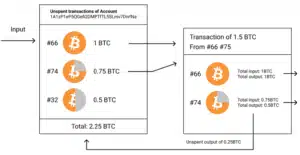Digging into the details of Investment Property

An appreciating asset is a piece of real estate acquired with the purpose of generating a return on that investment by the rental property, eventual through the selling of the asset, or both. An investment manager, a privately owned company, or a general company may own the property. An investment property might be a long-term as well as a short-term venture. With one or the other, investors will frequently participate in flipping, which is the process of purchasing real estate, remodelling or renovating it, and then selling it for a profit in a short period of time. The phrase investment property can also refer to other assets purchased by an investor for the purpose of future gains, such as art, stocks, land, or other valuables.
Recognizing Investment Properties
Investment properties are ones that are not utilized as the owner’s primary dwelling. They produce commercial property funds in the form of earnings, income, rentals, or even copyrights that are not related to the property of the landlord’s main area of business. And how an investment vehicle is used has a big influence on its valuation. Investors will occasionally undertake studies to identify the best and most lucrative use of an asset. This is known as the estate’s greatest possible usage. For instance, if an income property is designated for both business and residential use, the entrepreneur analyses the benefits and drawbacks of each to determine which has the best prospective return on investment. UK Property Investments believes that investing in real estate should be simple, painless, and easily understandable.
Investment Property Types
- Residential: Renting out a house is a common strategy for investors to augment their earnings. Monthly rentals can be collected by an entrepreneur who buys residential real estate and payments it out to residents. Single-family houses, apartments, condominiums, villas, and other types of residential constructions can be included.
- Commercial: Income-generating assets do not have to be household all of the time. Some entrepreneurs, particularly companies, buy commercial buildings that are solely used for commercial purpose. Management and upgrades to these assets may be more expensive, but these expenses may be mitigated by better returns. This is due to the fact that leases for these buildings frequently fetch higher rents. These structures might be commercially operated residential complexes or retail shop sites.
- Mixed-Use: A combined property can be utilized for both industrial and residential activities at the same time. A structure may, for example, contain a retail shop on the ground level, such as a supermarket, bar, or cafeteria, while the upper half of the property holds housing properties.
Property Investment Financing
Borrowers who acquire a grant for their personal house have access to a wide variety of financing choices, include FHA loans, VA mortgages and commercial loans but obtaining finance for an investment property might have been more difficult. Because insurers would not provide monthly payments for property investments, borrowers must put down at the same time 20% to get equity finance for property homes. Before accepting an applicant for a property investment loan, financial institutions also want strong credit ratings and generally low mortgage correlations.









